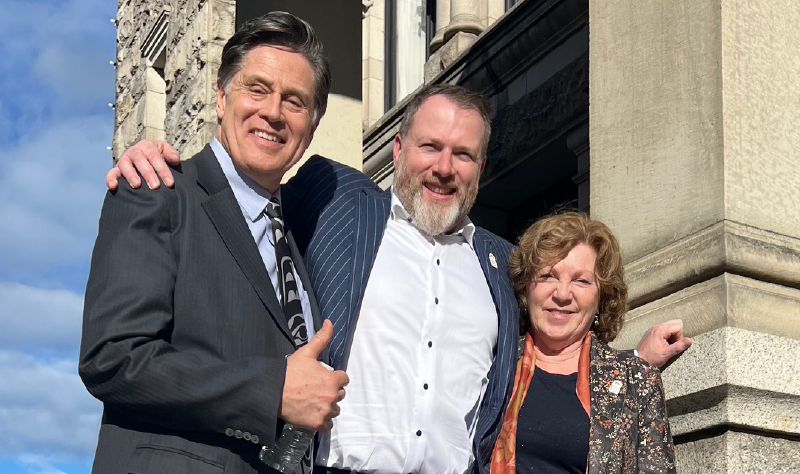TERRACE, BC – (April 28, 2017) – 85% of Northwest B.C. residents believe it is important to have a revenue sharing agreement under which a portion of provincial government revenue from Northwest B.C. resource projects would be provided back to local governments, a new Insights West poll released today has found.
The poll also found that more than 75% of residents believe provincial government financial support for facilities and services in their region is worse than in the Lower Mainland.
According to research conducted by the Northwest B.C. Resource Benefits Alliance (RBA), Northwest B.C. communities have a combined $600 million infrastructure deficit, with that number increasing annually.
“Without provincial government revenue sharing, our taxpayers do not have the means to fill the infrastructure and local service gaps we face, especially since we can’t tax resource developments outside of municipal boundaries,” says Bill Miller, Chair of the RBA and Regional District of Bulkley-Nechako.
Poll results find that, by far, residents would prefer to secure a share of provincial revenue from resource projects (61%), with significantly fewer opting for increasing taxes on resource companies (34%) or increasing local property taxes (6%).
“There is strong support for resource development in the Northwest,” says Mario Canseco, Vice President, Public Affairs, at Insights West. “Residents rely on major resource projects to sustain their families with six-in-ten respondents stating an influx in major projects would positively affect their family’s quality of life.”
Three-in-four residents believe resource project development in the Northwest will benefit their communities. The majority of residents expect the resource projects to bring employment opportunities (82%), local business opportunities (79%), increased provincial revenue (76%), local tax revenue (66%), community sustainability (65%), and higher wages (60%).
In the past five years, there has been $13 billion in wealth-creating major project capital spending in the Northwest, generating at least $500 million in incremental provincial government revenue. “The provincial government is relying on Northwest resources to provide monetary resources for the entire province,” says Barry Pages, Vice-Chair of the RBA and Chair of the North Coast Regional District. “While residents are supportive of resource development and the resulting influx of jobs and opportunities, that comes with significant cost pressures for municipalities and regional districts. The revenue leaves the region and we are left with the costs. The Northwest should have a tangible physical legacy from all this wealth, not be left worse off as we have been in past development booms.”
According to the province’s major project inventory, there is $230 billion worth of projects slated for Northwest B.C. Conservative estimates, that exclude LNG, forecast at least $30 billion to move forward in the next 10 years. As global economic conditions improve, it could be much more. A few LNG plants would more than double this number to over $60 billion.
“Negotiations need to begin now,” says Mayor Phil Germuth, Vice-Chair of the RBA and Chair of the Regional District of Kitimat-Stikine. “We’re asking that, by September 9, 2017, whichever government is elected will begin good-faith negotiations with the RBA, representing B.C.’s Northwest communities.”
– 30 –
The Northwest B.C. Resource Benefits Alliance is a group of 21 local governments across Northwest B.C., from Masset to Vanderhoof, committed to achieving revenue sharing for the region. For more information visit nwresourcebenefits.ca.
Methodology
Results are based on an online study conducted by Insights West from April 18 to April 22, 2017, among 502 adult British Columbians who reside in the regional districts of Bulkley-Nechako, North Coast and Kitimat-Stikine. The data has been statistically weighted according to Canadian census figures for age, gender and region. The margin of error — which measures sample variability — is +/- 4.4 percentage points.
Media availability:
Bill Miller, RBA Chair, and Chair, Regional District of Bulkley-Nechako
Barry Pages, RBA Vice-Chair and Chair, North Coast Regional District
Mayor Phil Germuth, RBA Vice-Chair and Chair, Regional District of Kitimat-Stikine
Mario Canseco, Vice President, Public Affairs, at Insights West
CONTACT INFORMATION
Media contacts:
Amanda Munro, 604-360-3994
Brandon Thompson, 250-686-6887
communications@rdks.bc.ca
Original news release appeared on Marketwired.


